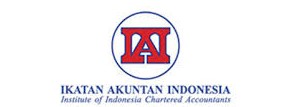Pengaruh Overconfidence Bias dan Herding Bias terhadap Pengambilan Keputusan Gen Z di Kota Padang dalam Berinvestasi di Pasar Saham Indonesia
Abstract
This study seeks to investigate the impact of overconfidence and herding biases on the investment decision-making process among Generation Z individuals in Padang City. Conducted through survey research using a questionnaire to collect primary data, responses were gathered from 400 participants, including employees, students, and high school students aged 20-29 years. The statistical analysis employed for this research is multiple regression analysis. The findings reveal a significant positive correlation between overconfidence bias and the investment decision-making of Generation Z in Padang City. Additionally, herding bias also exhibits a notable positive influence on the decision-making of this demographic. The implications of this study aim to prompt readers, particularly Generation Z individuals considering investments in the Indonesian stock market, to approach decision-making with greater caution to minimize potential risks, especially for those new to investment endeavors.
References
Afriani, D., Jurusan Akuntansi Fakultas Ekonomi, A., Negeri Padang, U., & Akuntansi Fakultas Ekonomi, J. (2019). Pengaruh Cognitive Dissonance Bias, Overconfidence Bias Dan Herding Bias Terhadap Pengambilan Keputusan Investasi (Studi Empiris Pada Mahasiswa Fakultas Ekonomi Universitas Negeri Padang Yang Melakukan Investasi Di Bursa Efek Indonesia). Jurnal Eksplorasi Akuntansi, 1(4), 1650–1665. Http://Jea.Ppj.Unp.Ac.Id/Index.Php/Jea/Issue/View/14
Agus Harjito, A. M. (2014). Manajemen Keuangan. Ekonisia Kampus Fakultas Ekonomi Univertas Islam Indonesia.
Ariefin Addinpujoartanto, N., & Darmawan, S. (2020). Pengaruh Overconfidence, Regret Aversion, Loss Aversion, Dan Herding Bias Terhadap Keputusan Investasi Di Indonesia. In Sejarah Artikel: Diterima. Http://Journals.Usm.Ac.Id/Index.Php/Jreb
Chen, M. H., Chen, B. H., & Chi, C. G. Qing. (2019). Socially Responsible Investment By Generation Z: A Cross-Cultural Study Of Taiwanese And American Investors. Journal Of Hospitality Marketing And Management, 28(3), 334–350. Https://Doi.Org/10.1080/19368623.2019.1525690
Duwi Rahayu, A., Putra, A., Oktaverina, C., Aulia Ningtyas, R., Studi Akuntansi, P., & Pendidikan Ekonomi Dan Bisnis, F. (2019). Perilaku Herding Di Pasar Saham: Sebuah Kajian Literatur. In Journal Of Business Management Education | (Vol. 4, Issue 3).
Eduardus Tandelilin. (2012). Manajemen Investasi. Edisi Ke-1. Cet, 6.
Fishbein, Martin ;Ajzen, I. (1988). Theory Of Reasoned Action Dan Theory Of Planned Behavior. Doi/10.1037/A0019275
Ghozali, I. (2018). Aplikasi Analisis Multivariate Dengan Program Ibm Spss 25 (9th Ed.). Badan Penerbit Universitas Diponegoro.
Hardianto;Lubis, S. H. (2022). Analisis Literasi Keuangan, Overconfidence Dan Toleransi Risiko Terhadap Keputusan Investasi Saham. E-Journal Akuntansi, 32(3), 684–696.
Hartono, J. (2017). Teori Portofolio Dan Analisis Investasi (11th Ed.). Bpfe.
Herlina, H., Hadianto, B., Winarto, J., & Suwarno, N. A. N. (2020). The Herding And Overconfidence Effect On The Decision Of Individuals To Invest Stocks. Journal Of Economics And Business, 3(4). Https://Doi.Org/10.31014/Aior.1992.03.04.288
Kansal, P., & Singh, S. (2018). Determinants Of Overconfidence Bias In Indian Stock Market. Qualitative Research In Financial Markets, 10(4), 381–394. Https://Doi.Org/10.1108/Qrfm-03-2017-0015
Maharani, R., & Simanjuntak, A. (2022). Dan Modal Minimal Investasi Terhadap Keputusan Investasi Di Pasar Modal. 6, 3333–3343.
Paul A. M. Van Lange, Arie W. Kruglanski, E. T. H. (2012). Handbook Of Theories Of Social Psychology. Sage.
Pranyoto, E. (2020). Herding Behavior, Experienced Regret Dan Keputusan Investasi Pada Bitcoin. Jurnal Bisnis Darmajaya, 06(01).
Retnowati, T. (2018). Pengaruh Money Attitudes, Overconfidence Dan Risk Keputusan, Tolerance Terhadap Pengambilan Surabaya, Investasi Saham Di.
Sabir, S. A., & Bin, H. (2019). The Role Of Overconfidence And Past Investment Experience On Herding Behavior With A Moderation Influence Financial Literacy: Evidence From The Pakistan Stock Exchange. Asian Economic And Financial Review, 9(4), 480–490. Https://Doi.Org/10.18488/Journal.Aefr.2019.94.480.490
Schroders. (2017). Studi Investor Global 2017 Perilaku Investor: Dari Prioritas Ke Ekpektasi. Schroder I, 10–11.
Sugiyono. (2014). Metode Penelitian Kuantitatif, Kualitatif Dan R & D. Alfabeta.
Tilman, B. (1994). Weak Dominance And Approximate Common Knowledge. Journal Of Economic Theory, 64(1), 265–276.
Virigineni, M., & Rao, M. B. (2017). Contemporary Developments In Behavioral Finance. International Journal Of Economics And Financial Issues, 7(1), 448–459.
Willyanto, J. G. V. (2021). Pengaruh Bias Terhadap Keputusan Investasi Saham Pada Investor Muda Di Surabaya. Jurnal Akuntansi Dan Pajak, 02(22).
Rona, I. W., & Sinarwati, N. K. (2021). Pengaruh Herding Bias dan Overconfidence Bias terhadap Pengambilan Keputusan Investasi. Studi Akuntansi Dan Keuangan Indonesia, 4(2), 104–130. https://doi.org/10.21632/saki.4.2.104-130
(Vijaya, 2014)Vijaya, E. (2014). An Empirical Analysis Of Influential Factors On Investment Behaviour Of Retail Investors’ In Indian Stock Market: A Behavioural Perspective. International Journal in Management and Social Science, 2(12), 296–308.
Khan, M. T. I., Siow-Hooi, T., & Lee-Lee, C. (2016). The Effects of Stated Preferences for Firm Characteristics, Optimism and Overconfidence on Trading Activities. International Journal of Bank Marketing, 34(7), 1–25.
Khan, M. Z. U. (2015). Impact of Availability Bias and Loss Aversion Bias On Investment. Journal of Research in Business Management, 1(2), 1–12.







.png)
.png)
